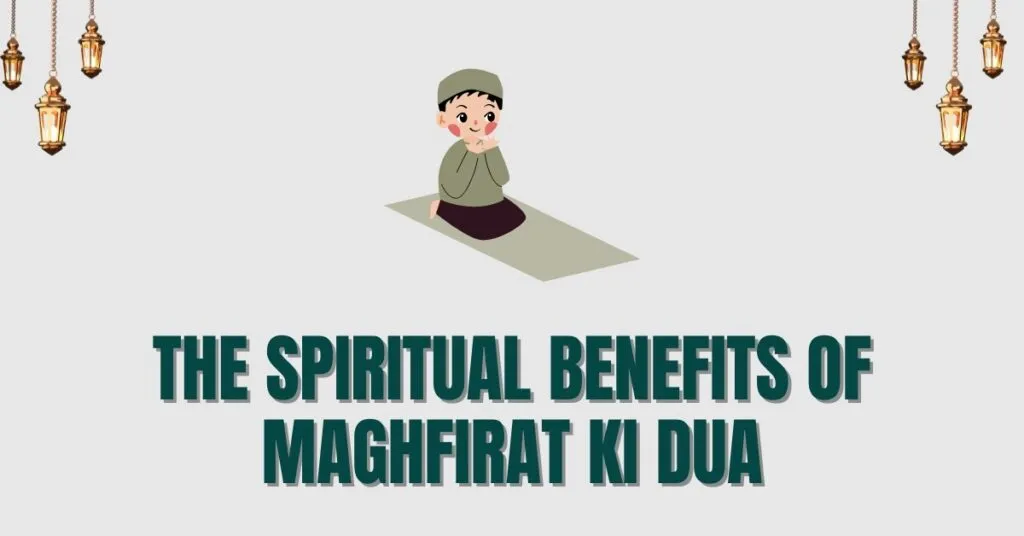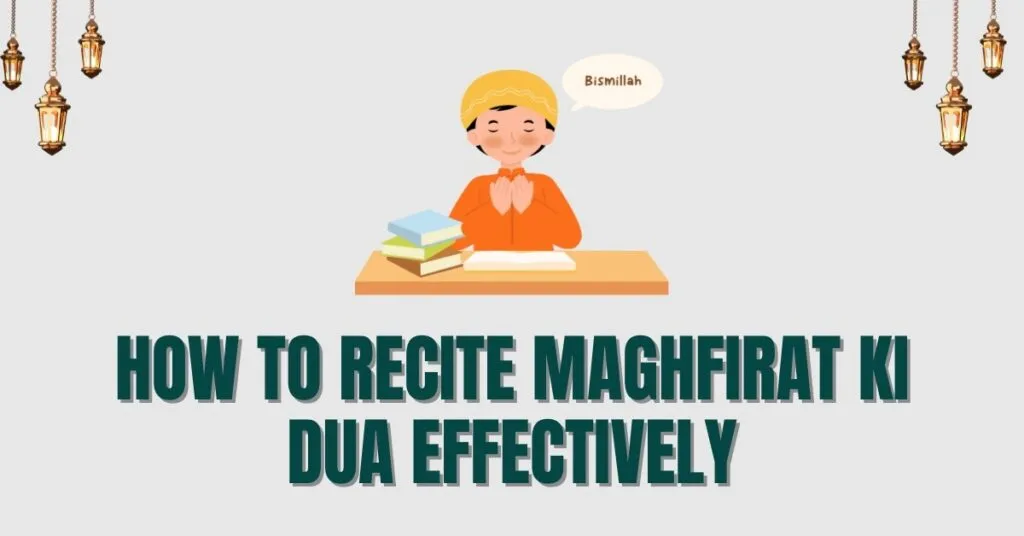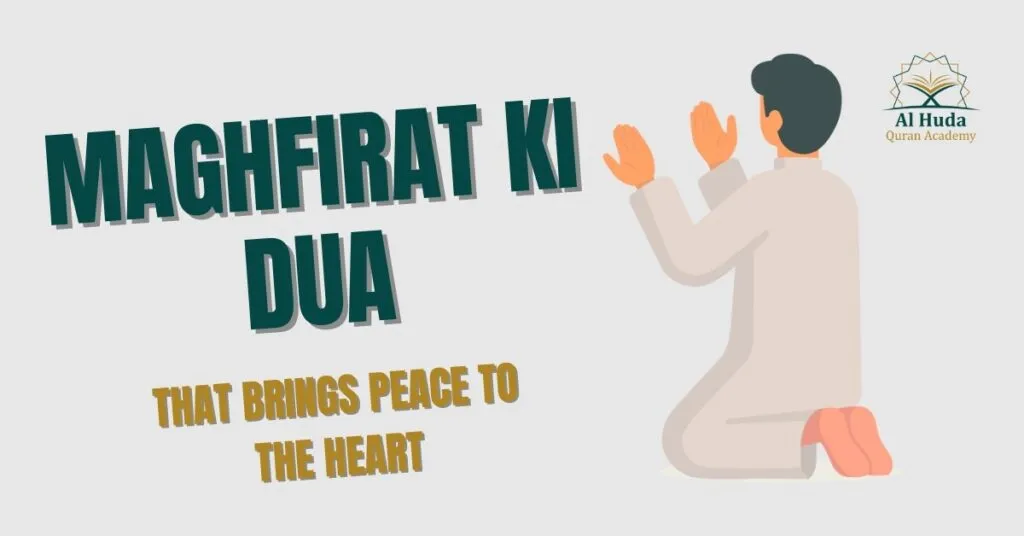Forgiveness is one of the most beautiful sorts of mercy. For Muslims, searching for forgiveness (Maghfirat) is not just a means to cleanse the soul however additionally a manner to locate solace and inner peace in a global complete of uncertainties. This weblog explores the profound importance of Maghfirat ki Dua (The Supplication for Forgiveness) and its ability to bring tranquility to the heart and soul.
What can you expect from this guide?
We will discover the essence of Maghfirat, its spiritual benefits, effective Duas from the Quran and Hadith, sensible pointers for incorporating Duas into everyday life, and even the medical connection among forgiveness and intellectual health.
Understanding Maghfirat and Its Importance in Islam
Maghfirat, or looking for forgiveness, is a critical thing of Islam that fosters religious boom, inner peace, and a more potent connection with Allah.
What is Maghfirat?
Maghfirat, in easy terms, is a method seeking Allah’s forgiveness. It stems from the Arabic root “Ghafar,” which means cowl or shield. When a Muslim seeks Maghfirat, they are asking Allah to forgive and conceal their sins, defending them from the effects on this world and the Hereafter.
It is emphasized time and again inside the Quran and Hadith how essential Maghfirat is, now not just for religious purification however additionally for maintaining a deep and significant connection with Allah.
Why Seeking Forgiveness is Vital for Every Muslim
Every human being makes mistakes. However, Islam is a religion of hope and redemption. Seeking Allah’s forgiveness is a way to correct one’s mistakes, get closer to Him, and show sincere repentance. The Prophet Muhammad (PBUH) said,
“All the sons of Adam sin, and the best of those who sin are those who repent.” (Tirmidhi).
Seeking forgiveness regularly demonstrates humility and awareness, acknowledging one’s flaws and Allah’s boundless mercy.
The Spiritual Benefits of Maghfirat ki Dua

It emphasizes the importance of seeking Allah’s forgiveness to attain spiritual growth and mercy.
How Maghfirat Brings Tranquility to the Heart
When we seek forgiveness, we unburden ourselves of guilt and regret, each of which weigh closely at the coronary heart. Maghfirat ki Dua acts as a non secular catharsis, easing the soul and bringing an exceptional feel of internal peace.
Allah mentions within the Quran,
“And [saying], ‘Seek forgiveness of your Lord and repent to Him, [and] He will let you revel in an excellent provision.'” (Quran, 11:3)
This verse highlights the tranquil joy that stems from repentance and forgiveness.
Maghfirat and Its Role in Cleansing the Soul
Seeking forgiveness cleanses the soul from impurities due to sins. It paves the way for spiritual growth, as the heart turns into extra receptive to divine guidance. The Prophet Muhammad (PBUH) himself sought forgiveness over seventy times an afternoon (Bukhari), teaching us its importance.
Powerful Maghfirat ki Dua From the Quran and Hadith
Maghfirat, or seeking forgiveness, serves as a powerful means of purifying the soul and attaining Allah’s mercy.
Dua for Forgiveness From the Quran
The Quran offers several lovely supplications in search of forgiveness. One of the maximum famous is from Surah Al-A’raf:
“Our Lord, forgive us and our brothers who preceded us in faith and placed not in our hearts [any] resentment towards the ones who have believed. Our Lord, certainly You are Kind and Merciful.” (Quran, fifty nine:10)
Another frequently recited Dua is from Surah Al-Baqarah,
“Our Lord, do not impose blame upon us if we forget about or make a mistake.” (Quran, 2:286)
Sunnah and Duas from the Prophet Muhammad (PBUH)
The Prophet Muhammad (PBUH) taught us several powerful Duas for forgiveness. One of the most well-known is,
O Allah, You are my Lord, there is no deity except You. You created me, and I am Your servant. I seek Your protection from the evil of what I have done. I admit to Your blessings upon me and my sins. Forgive me, for there is none who forgives sins except You.” (Sahih Al-Bukhari)
How to Recite Maghfirat ki Dua Effectively

This Dua emphasizes humility, gratitude, and seeking forgiveness from Allah with sincerity.
The Best Times to Make Maghfirat ki Dua
Certain moments hold greater significance for making Maghfirat ki Dua. These include:
- After Salah: Post-prayer supplications are optimal for connecting with Allah.
- During Tahajjud, the quiet of night is an ideal time to seek forgiveness while others sleep.
- On Fridays: The blessed moments of Jumu’ah are perfect for asking Allah for mercy.
- The Last Ten Days of Ramadan: Especially during Laylatul Qadr.
Mindfulness and Sincerity in Seeking Forgiveness
Make your Dua meaningful by being mindful of its words and fully believing in Allah’s mercy. A sincere heart is the key to Maghfirat. Avoid reciting mechanically, and instead focus on the intent and emotions behind the supplication.
Incorporating Maghfirat ki Dua in Daily Life
Maghfirat ki Dua can transform daily habits into acts of spiritual reflection and connection with Allah.
Simple Steps to Make Dua a Habit
- Set a reminder on your phone to take a moment to seek forgiveness.
- Make Dua part of your morning and evening routine.
- Pair it with other habits, like post-prayer reflections or before bedtime.
Combining Maghfirat ki Dua with Other Acts of Worship
Integrate Maghfirat ki Dua into other deeds such as charity, fasting, or reciting the Quran. These acts amplify the sincerity and rewards of your supplications.
Real-Life Stories: How Maghfirat ki Dua Changed Lives
Maghfirat ki Dua holds the electricity to convert lives via honest repentance and connection with Allah.
Testimonies of Inner Peace After Making Dua
Many human beings proportion testimonies approximately how seeking forgiveness transformed their lives, imparting them religious upliftment and newfound tranquility.
Lessons We Can Learn From These Experiences
These memories remind us that Allah’s mercy is boundless and how forgiveness can definitely impact each thing of lifestyles, which include relationships and emotional health.
Common Mistakes to Avoid When Seeking Maghfirat
Avoiding common errors guarantees that our repentance is honest and aligns with the teachings of Islam.
Being Insincere or Half-Hearted
Half-hearted supplications defeat the cause of looking for forgiveness. Approach Allah with sincerity and humility.
Neglecting to Change Behavior After Forgiveness
True repentance includes aim and attempt to alternate behavior and avoid falling into the equal errors.
Maghfirat ki Dua and Mental Health: The Science Behind It
The act of looking for Maghfirat now not handiest strengthens one’s non secular connection with Allah but also promotes intellectual peace and emotional nicely-being.
How Forgiveness Helps Reduce Stress and Anxiety
Studies display that forgiveness is linked to decreased stages of pressure, depression, and anxiety. It promotes mental clarity, emotional balance, and bodily health.
Linking Spiritual Peace to Psychological Well-Being
Seeking forgiveness aligns with mental practices like mindfulness and emotional release, paving a route to internal peace and overall nicely-being.
Final Thoughts: Embracing Maghfirat for a Peaceful Heart
Maghfirat ki Dua isn’t just a spiritual duty; it’s miles a spiritual remedy and an emotional balm. Through searching for forgiveness, we cleanse our hearts, purify our souls, and construct a stronger reference to Allah.
Make Maghfirat ki Dua a ordinary a part of your existence, and witness the way it enriches not only your spirituality however additionally your typical nicely-being.
Frequently Asked Questions (FAQs)
Allah’s mercy is infinite, and sincere repentance can erase all sins.
No, Maghfirat applies to each primary and minor sins.
It is recommended to make it regularly, a couple of times a day, just like the Prophet (PBUH) did.

